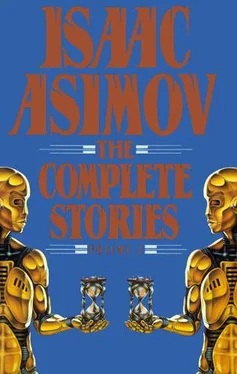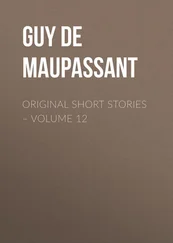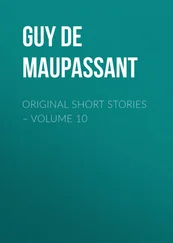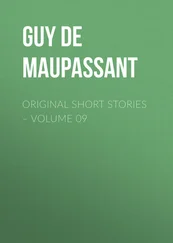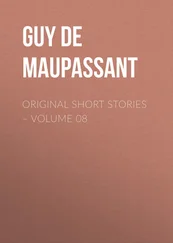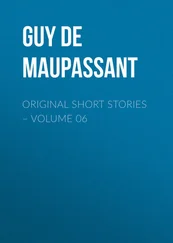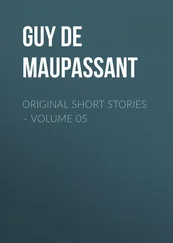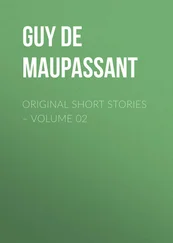Isaac Asimov - Short Stories Vol.1
Здесь есть возможность читать онлайн «Isaac Asimov - Short Stories Vol.1» весь текст электронной книги совершенно бесплатно (целиком полную версию без сокращений). В некоторых случаях можно слушать аудио, скачать через торрент в формате fb2 и присутствует краткое содержание. Жанр: Фантастика и фэнтези, на английском языке. Описание произведения, (предисловие) а так же отзывы посетителей доступны на портале библиотеки ЛибКат.
- Название:Short Stories Vol.1
- Автор:
- Жанр:
- Год:неизвестен
- ISBN:нет данных
- Рейтинг книги:4 / 5. Голосов: 1
-
Избранное:Добавить в избранное
- Отзывы:
-
Ваша оценка:
- 80
- 1
- 2
- 3
- 4
- 5
Short Stories Vol.1: краткое содержание, описание и аннотация
Предлагаем к чтению аннотацию, описание, краткое содержание или предисловие (зависит от того, что написал сам автор книги «Short Stories Vol.1»). Если вы не нашли необходимую информацию о книге — напишите в комментариях, мы постараемся отыскать её.
Short Stories Vol.1 — читать онлайн бесплатно полную книгу (весь текст) целиком
Ниже представлен текст книги, разбитый по страницам. Система сохранения места последней прочитанной страницы, позволяет с удобством читать онлайн бесплатно книгу «Short Stories Vol.1», без необходимости каждый раз заново искать на чём Вы остановились. Поставьте закладку, и сможете в любой момент перейти на страницу, на которой закончили чтение.
Интервал:
Закладка:
People might say that the human mind was somehow qualitatively different from a ship or factory but the history of intellectual endeavor proved the opposite.
When science was young and the intricacies of all or most of the known was within the grasp of an individual mind, there was no need for direction, perhaps. Blind wandering over the uncharted tracts of ignorance could lead to wonderful finds by accident.
But as knowledge grew, more and more data had to be absorbed before worthwhile journeys into ignorance could be organized. Men had to specialize. The researcher needed the resources of a library he himself could not gather, then of instruments he himself could not afford. More and more, the individual researcher gave way to the research team and the research institution.
The funds necessary for research grew greater as tools grew more numerous. What college was so small today as not to require at least one nuclear micro-reactor and at least one three-stage computer?
Centuries before, private individuals could no longer subsidize research. By 1940, only the government, large industries and large universities or research institutions could properly subsidize basic research.
By 1960, even the largest universities depended entirely upon government grants, while research institutions could not exist without tax concessions and public subscriptions. By 2000, the industrial combines had become a branch of the world government and, thereafter, the financing of research and therefore its direction naturally became centralized under a department of the government.
It all worked itself out naturally and well. Every branch of science was fitted neatly to the needs of the public, and the various branches of science were co-ordinated decently. The material advance of the last half-century was argument enough for the fact that science was not falling into stagnation.
Foster tried to say a very little of this and was waved aside impatiently by Potterley who said, "You are parroting official propaganda. You're sitting in the middle of an example that's squarely against the official view. Can you believe that?"
"Frankly, no."
"Well, why do you say time viewing is a dead end? Why is neutrinics unimportant? You say it is. You say it categorically. Yet you've never studied it. You claim complete ignorance of the subject. It's not even given in your school-"
"Isn't the mere fact that it isn't given proof enough?"
"Oh, I see. It's not given because it's unimportant. And it's unimportant because it's not given. Are you satisfied with that reasoning?"
Foster felt a growing confusion. "It's in the books."
"That's all. The books say neutrinics is unimportant. Your professors tell
you so because they read it in the books. The books say so because professors write them. Who says it from personal experience and knowledge? Who does research in it? Do you know of anyone?"
Foster said, "I don't see that we're getting anywhere, Dr. Potterley. I have work to do-"
"One minute. I just want you to try this on. See how it sounds to you. I say the government is actively suppressing basic research in neutrinics and chronoscopy. They're suppressing application of chronoscopy."
"Oh, no."
"Why not? They could do it. There's your centrally directed research. If they refuse grants for research in any portion of science, that portion dies. They've killed neutrinics. They can do it and have done it."
"But why?"
"I don't know why. I want you to find out. I'd do it myself if I knew enough. I came to you because you're a young fellow with a brand-new education. Have your intellectual arteries hardened already? Is there no curiosity in you? Don't you want to know? Don't you want answers?"
The historian was peering intently into Foster's face. Their noses were only inches apart, and Foster was so lost that he did not think to draw back.
He should, by rights, have ordered Potterley out. If necessary, he should have thrown Potterley out.
It was not respect for age and position that stopped him. It was certainly not that Potterley's arguments had convinced him. Rather, it was a small point of college pride.
Why didn't M.I.T. give a course in neutrinics? For that matter, now that he came to think of it, he doubted that there was a single book on neutrinics in the library. He could never recall having seen one.
He stopped to think about that.
And that was ruin.
Caroline Potterley had once been an attractive woman. There were occasions, such as dinners or university functions, when, by considerable effort, remnants of the attraction could be salvaged.
On ordinary occasions, she sagged. It was the word she applied to herself in moments of self-abhorrence. She had grown plumper with the years, but the flaccidity about her was not a matter of fat entirely. It was as though her muscles had given up and grown limp so that she shuffled when she walked, while her eyes grew baggy and her cheeks jowly. Even her graying hair seemed tired rather than merely stringy. Its straightness seemed to be the result of a supine surrender to gravity, nothing else.
Caroline Potterley looked at herself in the mirror and admitted this was one of her bad days. She knew the reason, too.
It had been the dream of Laurel. The strange one, with Laurel grown up. She had been wretched ever since.
Still, she was sony she had mentioned it to Arnold. He didn't say anything; he never did any more; but it was bad for him. He was particularly withdrawn for days afterward. It might have been that he was getting ready for that important conference with the big government official (he kept saying he expected no success), but it might also have been her dream.
It was better in the old days when he would cry sharply at her, "Let the dead past go, Caroline! Talk won't bring her back, and dreams won't either."
It had been bad for both of them. Horribly bad. She had been away from home and had lived in guilt ever since. If she had stayed at home, if she had not gone on an unnecessary shopping expedition, there would have been two of them available. One would have succeeded in saving Laurel.
Poor Arnold had not managed. Heaven knew he tried. He had nearly died himself. He had come out of the burning house, staggering in agony, blistered, choking, half-blinded, with the dead Laurel in his arms.
The nightmare of that lived on, never lifting entirely.
Arnold slowly grew a shell about himself afterward. He cultivated a low-voiced mildness through which nothing broke, no lightning struck. He grew puritanical and even abandoned his minor vices, his cigarettes, his penchant for an occasional profane exclamation. He obtained his grant for the preparation of a new history of Carthage and subordinated everything to that.
She tried to help him. She hunted up his references, typed his notes and microfilmed them. Then that ended suddenly.
She ran from the desk suddenly one evening, reaching the bathroom in bare time and retching abominably. Her husband followed her in confusion and concern.
"Caroline, what's wrong?"
It took a drop of brandy to bring her around. She said, "Is it true? What they did?"
"Who did?"
"The Carthaginians."
He stared at her and she got it out by indirection. She couldn't say it right out.
The Carthaginians, it seemed, worshiped Moloch, in the form of a hollow, brazen idol with a furnace in its belly. At times of national crisis, the priests and the people gathered, and infants, after the proper ceremonies and invocations, were dextrously hurled, alive, into the flames.
They were given sweetmeats just before the crucial moment, in order that the efficacy of the sacrifice not be ruined by displeasing cries of panic. The drums rolled just after the moment, to drown out the few seconds of infant shrieking. The parents were present, presumably gratified, for the sacrifice was pleasing to the gods. . . .
Читать дальшеИнтервал:
Закладка:
Похожие книги на «Short Stories Vol.1»
Представляем Вашему вниманию похожие книги на «Short Stories Vol.1» списком для выбора. Мы отобрали схожую по названию и смыслу литературу в надежде предоставить читателям больше вариантов отыскать новые, интересные, ещё непрочитанные произведения.
Обсуждение, отзывы о книге «Short Stories Vol.1» и просто собственные мнения читателей. Оставьте ваши комментарии, напишите, что Вы думаете о произведении, его смысле или главных героях. Укажите что конкретно понравилось, а что нет, и почему Вы так считаете.
